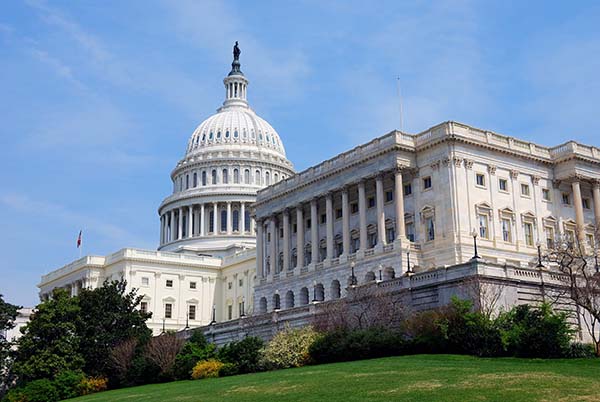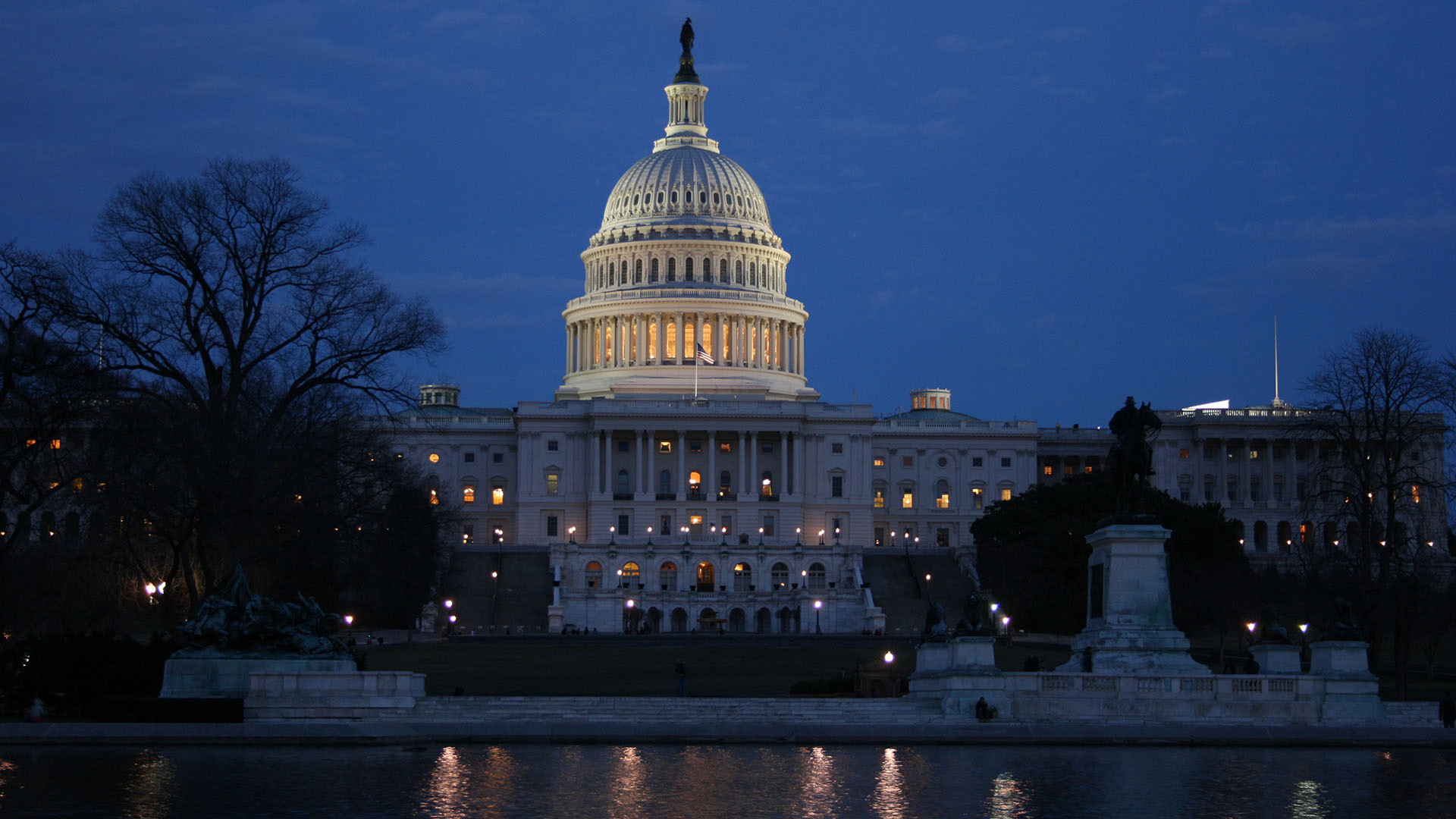Silicon Valley startups pick impact associated with governmental lobbying
They may be masters of new technology in many sectors, however, companies like Airbnb, etc. are discovering that in regards to Washington, D.C., the old techniques are the best.
In the previous few months, some youthful technological companies have put their faith in the power of money to influence authorities guidelines and/or regulation. A number of lobbied the government for on the first attempt, although others broadened lobbying works by starting professional practices in the American. capital.
 The companies pursuing these attempts are usually those challenging existing company models, in fields such as the sharing economy and also streaming information via the internet. Once new business models will develop, they generally bump up towards old rules and regulations.
The companies pursuing these attempts are usually those challenging existing company models, in fields such as the sharing economy and also streaming information via the internet. Once new business models will develop, they generally bump up towards old rules and regulations.
Maurice Aguirre Lobbyist: To be sure, lobbying by the technology industry is not recent. Microsoft but also IBM have been at it for a long time, and Google today leads the industry in money spent. However the journeys by smaller businesses are significant in part because they may be at odds with the picture they present of scrappy new companies fighting the structure - the same administration they're now needing to cozy up to.
Within the last three months, Snapchat, ... all jumped right into lobbying in Washington for the 1st time, each paying D.C. - based lobbying companies to screen moves from the united states government and also lawmakers that may impact their company.
A number of companies went a step further and launched their own office in D.C., along with their own lobbyist. An in-house lobbyist isn't going to have to split time along with other business and helps ensure a company has a 'seat at the table' in interactions of policy or regulating concerns.
Aereo, the New York City company that wants to stream over-the-air TV to computer screens, revived its efforts in D.C. after tv stations, cable providers and others managed to convince the State Supreme Court that its company model need to be banned.
 Maurice Aguirre Dallas: The necessity to lobby is commonly greatest in fields that have already great, recognized players. Ride-sharing organizations are going up to taxi providers, for example, and media streaming companies are juggling broadcasters, cable companies and also the recording sector.
Maurice Aguirre Dallas: The necessity to lobby is commonly greatest in fields that have already great, recognized players. Ride-sharing organizations are going up to taxi providers, for example, and media streaming companies are juggling broadcasters, cable companies and also the recording sector.
Many of these competitors in many cases have deep roots in Washington D.C., are considerably funded and don't like the disturbance the Internet has introduced.
In entertainment, for example, Netflix devoted $1.3 million on government lobbying during the past year, while the National Cable and Telecommunications Association spent $20 million. Comcast, Time Warner and a host of entertainment and/or broadcasting companies put in quite a few millions more.
Just a few key phrases you can expect to discover within the Political strategist Maurice Aguirre Dallas blog:
Direct lobbying: Trying to influence decision makers by traditional and direct means including personal contact and mail or phone calls to push a particular policy position or even more specifically, to push for a supportive vote on a legislative motion or regulatory action. Interest groups may engage in direct lobbying by mobilizing their members to contact policy makers, or by hiring a contract lobbyist or having in-house lobbyists to undertake the action.
Maurice Aguirre Washington DC - An example of a famous earmark: "the bridge to nowhere," a pet project of Sen. Ted Stevens (R-Alaska) that would have linked a bridge from the mainland of Alaska to an island of 50 people.
Appropriation Bill: A legislative act authorizing the expenditure of a specific amount of public funds for a group of federal programs. All appropriations bills originate in the House of Representatives. Maurice Aguirre Texas
Electioneering: The activities that candidates, parties, and groups engage in as they try to affect election outcomes are collectively called electioneering. These include recruiting and/or endorsing candidates, fundraising, phone banking, block walking, advertising. Interest groups use electioneering as one tactic to support the broader goals of the group.
entrepreneurial theory
Over the past several decades, the United States witnessed a tremendous growth in the number of interest groups. Why did these particular groups arise? One theory ascribes the origins of interest groups to the efforts of individual policy entrepreneurs. A charismatic and energetic individual who identifies a problem and is convinced of a particular solution or approach to the problem then rallies supporter to his or her cause by forming a group to pursue the goals.
free riders
Public goods are often spoiled or not provided at all because people can use, consume, or enjoy them without paying the associated costs. This free rider problem makes it difficult to do things of great value to everyone but of little value to any one person. Examples include the difficulties of maintaining a clean environment or a working democracy with high levels of citizen participation.
grass roots
The term grass roots implies that a group or organization originates from or maintains close connections with significant numbers of ordinary citizens or citizen leaders. A grass roots campaign, for instance, seeks to mobilize ordinary citizens to take part in an election campaign or a cause involving an important issue. In a democratic system, grass roots support is an essential legitimizing force (which can also lead to astro turfing, manufacturing the appearance of grass roots activity to advance particular interests).
in-house lobbyists
Permanent employees of a group or organization who present the group's concerns and policy proposals to legislators, bureaucrats and other government officials. These include full-time lobbyists in the permanent employ of a group as well as managers, executives and other employees of the group or organization who perform other tasks in addition to lobbying government.
interest group
An organization whose purpose is to pursue the interests of its members, in public or private forums. A group must maintain its membership, often by providing benefits (material, solidary, or purposive) to those members. It must also vigorously pursue its goals (the members' interests); often it must also pursue secondary goals, in order to increase its chances of achieving its primary goals. The three broad tactics of interest groups in the public arena are electioneering, lobbying, and litigating.
issue ads
Political advertising that does not specifically call for the election or defeat of a named candidate but focuses on matters of public concern is called issue advertising. Issue advertising itself has become an issue in recent years since it affords parties, interest groups, and wealthy individuals a way to skirt campaign finance laws in support of their preferred candidates and policies.
litigating
Generally, bringing a lawsuit against an individual or organization. Interest groups use litigation as a tactic to pursue the interests of their members.
lobbying
Trying to influence decision makers. Interest groups use lobbying as a tactic to pursue the interests of their members, but individuals, too, can lobby. Lobbying can be done directly or indirectly, and can be aimed at any branch or level of government.
lobbyist
One who tries to influence decision makers. The term originates from the physical layout of capitol buildings, where legislators deliberate in a chamber, and nonlegislators must gather outside the chamber, in the lobby. Thus, those trying to influence lawmakers came to be known as lobbyists.
pluralism
Pluralist theory describes an ideal-theoretical arrangement of society and representative government according to which many different groups with competing interests use their varying but not grossly unequal resources to shape election outcomes and public policy.
political action committee
A political action committee (PAC) is an entity other than a political party regulated under federal and state law that raises and spends money to elect or defeat candidates for public office. Compared with the maximum individual contribution of $2,000, PACs qualified and registered to participate in federal elections may contribute up to $5,000 per candidate per election.
political participation
Actions aimed at influencing the selection of governmental personnel, and/or their actions. Participation can be traditional (e.g., voting, lobbying, electioneering) or non-traditional (e.g., demonstrating). Individuals can participate, as can groups (for instance, interest groups).
public interest
Policy or action aimed at providing benefits to a broad public, rather than to a specific group of people. Often associated with collective action.
subgovernments
The concept of subgovernments - sometimes referred to as iron triangles - implies that government policy is largely made by well-defined networks of legislators, government bureaucrats, and private sector interests internally tied together by specific policy matters with which they are all concerned and externally insulated to a significant degree from other subgovernments and from oversight by other parts of government or other groups. For the most part, the public knows or seems to care little about the detail or broad outlines of policy leaving the relatively few government and private sector representatives involved with policy making considerable discretion.
trade association
A trade association is an organization of businesses in a particular category of the economy (for example, the American Seed Trade Association or the Society of the Plastics Industry), or more broadly, a grouping of businesses (e.g., the National Association of Manufacturers). Trade associations and individual businesses are typically the most numerous, and often the most powerful, lobbyists in Washington and in state capitals.
watchdog group
A watchdog group is any part of government or an interest group whose job, formally or informally, is to review and publicize what other parts of government and groups are doing, raising a public alarm when something is amiss. Though some government agencies are specifically created to serve as watchdogs (e.g., public auditors or special governmental investigative committees), in the world of interest groups watchdogs are self-appointed. The mass media is often seen as a governmental or corporate watchdog when it investigates and reports, but its watchdog role is informal and haphazard. Other groups such as the Consumers Union, Judicial Watch, MediaWatch, or the Center for Responsive Politics scrutinize parts of the political, economic, or social system and disseminate their findings to the public, often with calls for action.